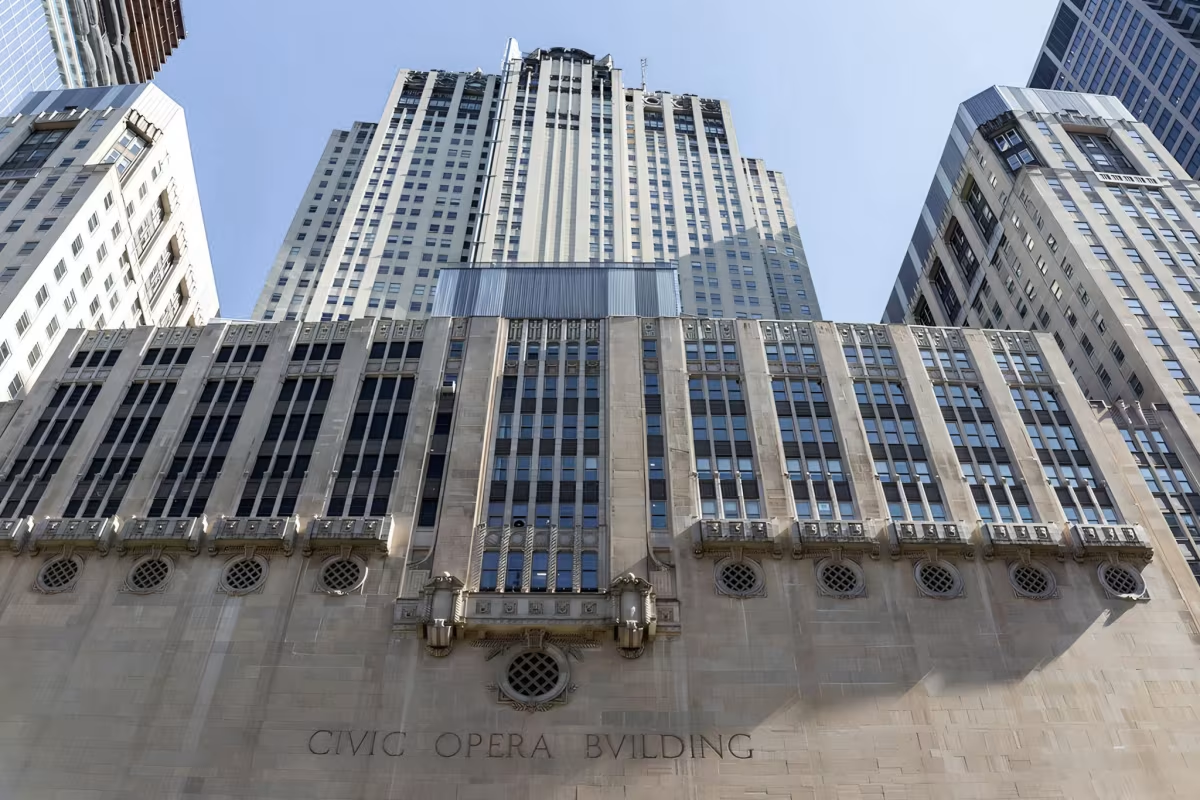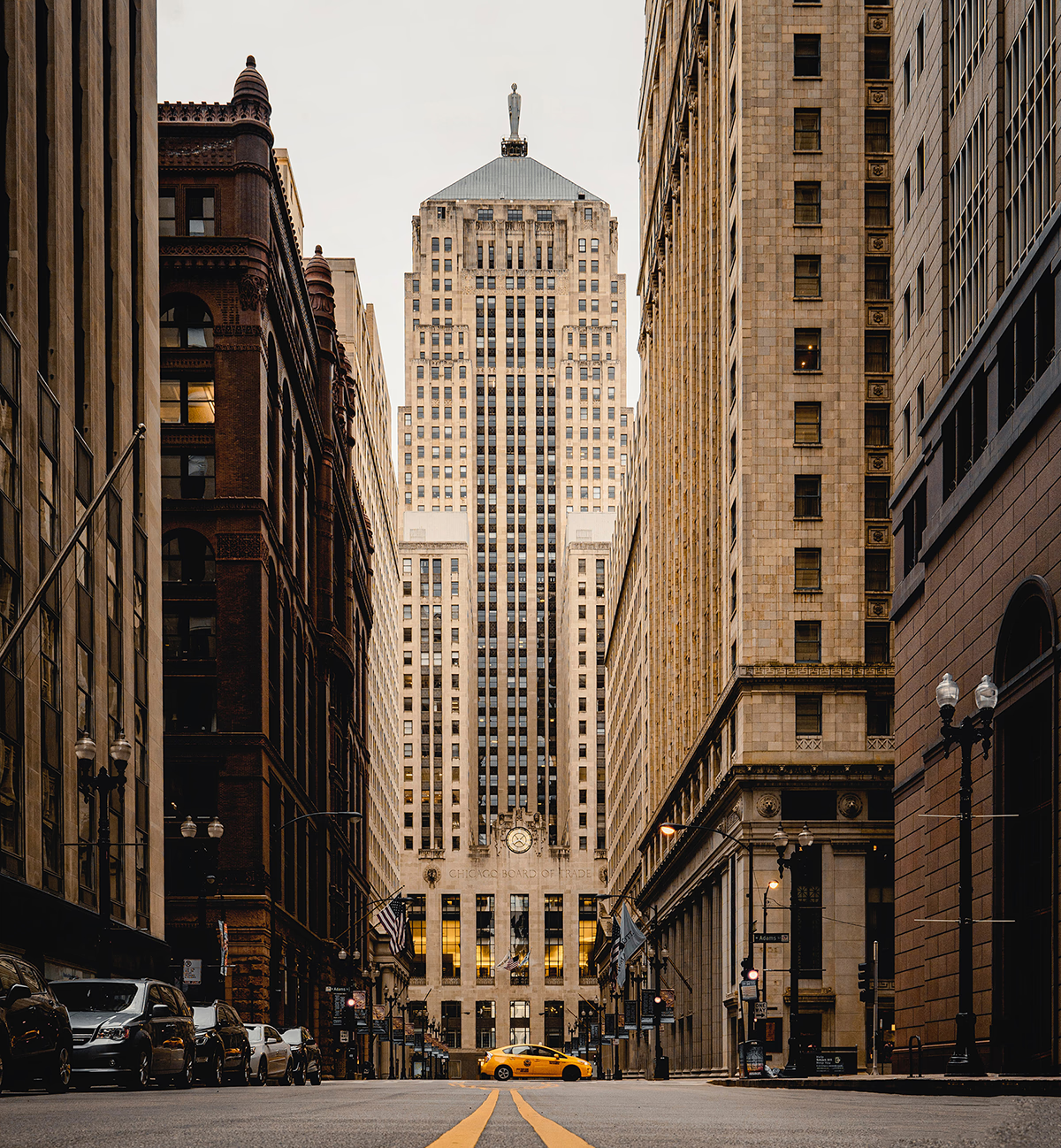Civic Opera House vs Chicago Board of Trade Building


Comparing the Civic Opera House and the Chicago Board of Trade Building is interesting because they both rise in Chicago, IL, yet they were conceived by two different design teams, Graham, Anderson, Probst & White and Holabird & Root, and were completed at different points in time. They were finished more than a decade apart.
This contrast within the same city allows us to see how different creative minds interpreted the evolving needs of Chicago across time.
Let's take a closer look!
Height & Size
These two towers present an interesting contrast in their proportions. The Chicago Board of Trade Building rises higher at 604ft (184m), while the Civic Opera House reaches 554ft (169m). However, the Civic Opera House accommodates more floors with 45 levels above ground, compared to 44 floors in the Chicago Board of Trade Building.
This suggests different approaches to interior space design. The Chicago Board of Trade Building has an average floor-to-floor height of approximately 4.2m, while the Civic Opera House has more compact floors averaging around 3.8m each.
These different proportions likely reflect the specific needs each building was designed to serve, whether driven by zoning regulations, client requirements, or the intended use of the spaces within. The contrast shows how architects can achieve different spatial experiences even when working with similar overall building scales.
Architectural Style
Both the Civic Opera House and the Chicago Board of Trade Building were designed in line with the aesthetic conventions of the Art Deco style.
The Chicago Board of Trade Building was designed at a moment when the Art Deco style was already in decline, making it more of a lingering expression of the movement. In contrast, the Civic Opera House was built when the style still carried greater cultural weight.
Uses
Both the Civic Opera House and the Chicago Board of Trade Building were designed to serve as commercial towers, and that has remained their main use since their completion, serving similar roles in the urban fabric.
Structure & Facade
Both the Civic Opera House and the Chicago Board of Trade Building rely on a Frame structural system.
A frame structure uses a grid of columns and beams to carry the building's loads. This frees the walls from structural duties, allowing for flexible floor plans and larger windows.
They also employ the same type of facade, a Masonry facade.
A masonry facade gives the building a heavier, more traditional appearance. It often conceals a frame structure behind it, creating the look of solid walls without carrying the main loads.
| Civic Opera House | Chicago Board of Trade Building | |
|---|---|---|
| Graham, Anderson, Probst & White | Architect | Holabird & Root |
| 1929 | Year Completed | 1939 |
| Art Deco | Architectural Style | Art Deco |
| Commercial | Current Use | Commercial |
| 45 | Floors Above Ground | 44 |
| 169 m | Height (m) | 184 m |
| Frame | Structure Type | Frame |
| Steel | Vertical Structure Material | Steel |
| No | Facade Structural? | No |
| IL | State | IL |
| Chicago | City | Chicago |
| 20 North Wacker Drive | Address | 141 W. Jackson Boulevard |